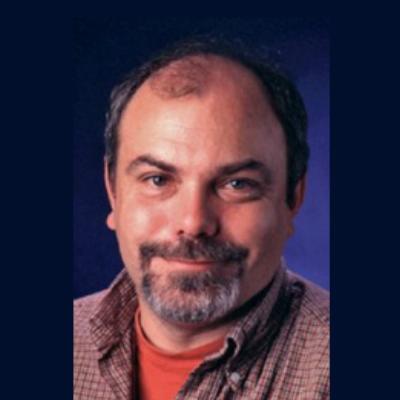James W. Gober

James W. Gober
Professor Emeritus
Biochemistry
Development and Gene Regulation
Young Hall 5072C
(310) 206-9449
Young Hall 5086
(310) 206-5684
Dr. Gober received his B.S. from Northeastern University and his Ph.D. from Boston University. He was a postdoctoral fellow at Columbia University and Stanford University.
Fundamental problems in developmental biology, such as the generation of asymmetry, differential transcription, and the execution of positional information, are all exhibited during the cell cycle of the bacterium, Caulobacter crescentus. Caulobacter undergoes a fixed sequence of differentiation events within each cell cycle. Cell division yields morphologically and biochemically dissimilar daughter cells; a swarmer cell which posesses a single polar flagellum and a non-motile stalked cell. During the latter portion of the DNA replication phase, the components of the flagellum are synthesized and assembled at the pole of the predivisional cell that is opposite the stalk.
For a subset of flagellar genes, positional information is generated through localized transcription in one pole of the cell. The newly replicated chromosomes in the predivisional cell, therefore differ in their program of transcription as well as the ability to initiate DNA replication. The overall goal of our research program is to define the mechanisms by which this differential, global programming of the Caulobacter chromosome is accomplished. Using both genetic and biochemical approaches we are determining the mechanisms of both temporal and spatial transcriptional activation of these locally expressed promoters.
We are also interested in the mechanisms that couple cellular morphogenesis to gene expression. Early flagellar assembly events are required for the transcription of genes encoding structures that are assembled later in the flagellum. These same events are also required for normal cell division. We are determining how factors that regulate gene expression and cell division monitor the assembly of the cellular structures.
Helen Hay Whitney Postdoctoral Fellow, Stanford University
- Clarke, C.F., Rowat,A.C., J.W. Gober Osmotic stress: Is CoQ a membrane stabilizer? Nat Chem Biol. (2014) Mar 18;10(4):242-3.
- White, C.L., J.W. Gober MreB: pilot or passenger of cell wall synthesis? Trends Microbiol. (2012) Feb;20(2):74-9.
- White Courtney L, Kitich Aleksandar, Gober James W Positioning cell wall synthetic complexes by the bacterial morphogenetic proteins MreB and MreD. Molecular microbiology, 2010; 76(3): 616-33.
- England Jennifer C, Perchuk Barrett S, Laub Michael T, Gober James W Global regulation of gene expression and cell differentiation in Caulobacter crescentus in response to nutrient availability. Journal of bacteriology, 2010; 192(3): 819-33.
- Divakaruni Arun V, Baida Cyril, White Courtney L, Gober James W The cell shape proteins MreB and MreC control cell morphogenesis by positioning cell wall synthetic complexes. Mol. Microbiol., 2007; 66(1): 174-88.
- Divakaruni Arun V, Loo Rachel R Ogorzalek, Xie Yongming, Loo Joseph A, Gober James W The cell-shape protein MreC interacts with extracytoplasmic proteins including cell wall assembly complexes in Caulobacter crescentus. Proc. Natl. Acad. Sci. U.S.A., 2005; 102(51): 18602-7.
- Dutton Rachel J, Xu Zhaohui, Gober James W Linking structural assembly to gene expression: a novel mechanism for regulating the activity of a sigma54 transcription factor. Mol. Microbiol., 2005; 58(3): 743-57.
- Muir Rachel E, Easter Jesse, Gober James W The trans-acting flagellar regulatory proteins, FliX and FlbD, play a central role in linking flagellar biogenesis and cytokinesis in Caulobacter crescentus. Microbiology (Reading, Engl.), 2005; 151(Pt 11): 3699-711.
- England Jennifer C, Gober James W Role of core promoter sequences in the mechanism of swarmer cell-specific silencing of gyrB transcription in Caulobacter crescentus. BMC Microbiol., 2005; 5(1): 25.
- Llewellyn Midge, Dutton Rachel J, Easter Jesse, O'donnol Danielle, Gober James W The conserved flaF gene has a critical role in coupling flagellin translation and assembly in Caulobacter crescentus. Mol. Microbiol., 2005; 57(4): 1127-42.
- Muir Rachel E, Gober James W Role of integration host factor in the transcriptional activation of flagellar gene expression in Caulobacter crescentus. J. Bacteriol., 2005; 187(3): 949-60.
- Evilevitch Alex, Gober James W, Phillips Martin, Knobler Charles M, Gelbart William M Measurements of DNA lengths remaining in a viral capsid after osmotically suppressed partial ejection. Biophys. J., 2005; 88(1): 751-6.
- Muir Rachel E, Gober James W Regulation of FlbD activity by flagellum assembly is accomplished through direct interaction with the trans-acting factor, FliX. Mol. Microbiol., 2004; 54(3): 715-30.
- Figge Rainer M, Divakaruni Arun V, Gober James W MreB, the cell shape-determining bacterial actin homologue, co-ordinates cell wall morphogenesis in Caulobacter crescentus. Mol. Microbiol., 2004; 51(5): 1321-32.
- Figge Rainer M, Gober James W Cell shape, division and development: the 2002 American Society for Microbiology (ASM) conference on prokaryotic development. Mol. Microbiol., 2003; 47(5): 1475-83.
- Figge Rainer M, Easter Jesse, Gober James W Productive interaction between the chromosome partitioning proteins, ParA and ParB, is required for the progression of the cell cycle in Caulobacter crescentus. Mol. Microbiol., 2003; 47(5): 1225-37.
- Easter Jesse, Gober James W ParB-stimulated nucleotide exchange regulates a switch in functionally distinct ParA activities. Mol. Cell, 2002; 10(2): 427-34.
- Draper Geoffrey C, Gober James W Bacterial chromosome segregation. Annu. Rev. Microbiol., 2002; 56(3): 567-97.
- Muir Rachel E, Gober James W Mutations in FlbD that relieve the dependency on flagellum assembly alter the temporal and spatial pattern of developmental transcription in Caulobacter crescentus. Mol. Microbiol., 2002; 43(3): 597-615.